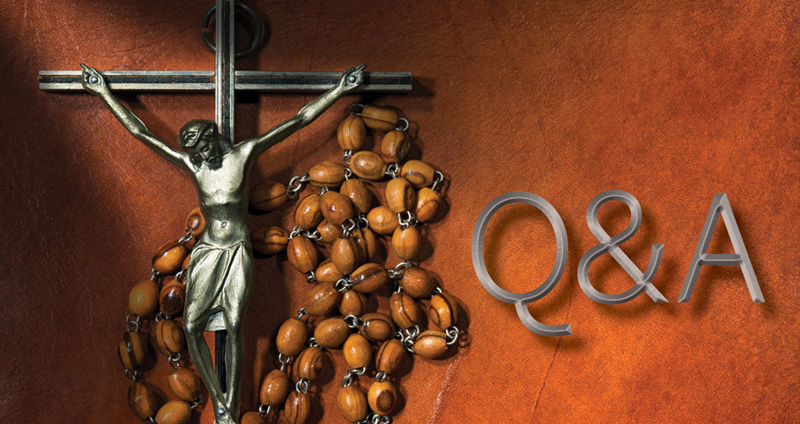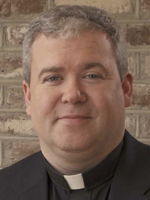
Q: Why can’t a permanent deacon remarry if his wife dies, especially if the deacon is required to retire at a certain age? (Parrish, Fla.)
A: This question requires some biblical and historical background. First, we look to the Bible. In his pastoral letters, Saint Paul teaches: “Deacons must not have been married more than once” (1 Tim 3:13).
This principle from the Bible, among others, is the basis for historical church law which says that those in Holy Orders cannot be married after ordination. If a permanent deacon is married before he is ordained, then he can still be ordained. But if his wife dies, however, then he cannot remarry since he has already been ordained.
The difference here is the significance of his ordination and the specific spiritual consecration that comes with it. Once a man is ordained, then he cannot marry since he has been dedicated to sacred service. In light of this dedication, the age of the deacon or even his possible retirement from active ministry is secondary since the graces of his diaconal vocation and his prayers as a deacon spiritually build up and strengthen the Church.
Therefore, if an ordained deacon wants to marry, he must be laicized. This basically means that he “returns to the lay state,” and cannot identify himself as a deacon nor perform any diaconal functions.
In 1998, the Vatican allowed for a dispensation from church law so that widowed deacons could remarry, especially if the deacon had young children to be raised or was caring for elderly parents or parents-in-law. In 2005, the Vatican tightened up these reasons and made the process more difficult since the dispensations did not prove pastorally helpful to deacons, their families, and their respective dioceses.
In this reevaluation, the Church is stressing the biblical and historical precedence that those in ordained service cannot marry. It emphasizes the preference that widowed permanent deacons remain unmarried.
Q: Could you comment on some novenas that require a person to leave the novena prayers in a church for nine days? It seems like a magical formula rather than trusting in God. (Little River, SC)
A: I’m very glad you asked this question. Novenas are a noble custom in our faith. The commitment to nine days of prayer to our Lord, Mary, or one of the saints, for a specific intention is praiseworthy. I’m personally grateful when someone indicates to me that they’ve offered a novena for my priesthood or my intentions. It’s a unique commitment and one that is grounded in the nine days of prayer of the apostles as they waited for the coming of the Holy Spirit. During the nine days between the Lord Jesus’ Ascension and the coming of the Holy Spirit, the apostles waited and prayed. Every novena is a spiritual extension of those sacred nine days.
And so to your specific question, anything that would border on superstition or be outside of our Christian spiritual tradition, should be approached with great caution. The “magical novenas” that assure results based solely on human actions (i.e., leave a bunch of copies in a church) are questionable at best.
Now, granted, some spiritual traditions can ask a lot of those devoted to them but the focus should always be God’s action and not on purely (and perhaps peculiar) human actions and their own merit. Incidentally, I can say jokingly that the “leave the copies in the church” novenas are not from God since such customs dirty up church entrance ways and frustrate priests and sacristans the world over!
Father Jeffrey Kirby is administrator of Our Lady of Grace Church in Lancaster. Email him your questions at askfrkirby@gmail.com.


